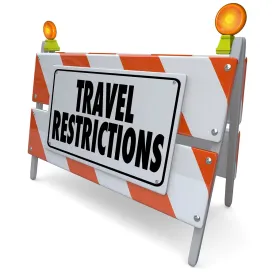Effective June 24, 2020, a new executive order from President Donald Trump will go into effect, limiting the entry of certain categories of foreign nationals to the U.S. through December 31, 2020 ostensibly to protect the U.S. labor market as it recovers from COVID-19. The order focuses on suspending and limiting entry of foreign nationals who are currently outside of the U.S. and who need a valid visa – in the following categories:
-
H-1B (specialty occupation professional workers) and H-2B (temporary/seasonal workers in short supply), and any dependents (spouse and under age 21 unmarried children) who are accompanying or following to join the foreign national worker;
-
J-1 (exchange visitors) participating as interns, trainees, teachers, camp counselors, au pairs, or participating in the summer work travel program, and any dependents who are accompanying or following to join the foreign national exchange visitor. Please note that J-1 physicians/residents and researchers are not impacted by this order and may still travel to the U.S.; and
-
L-1 (intracompany transferees) in both the L-1A manager/executive and L-1B specialized knowledge worker categories and any foreign national dependents accompanying or following to join the foreign national worker.
Again, the order does not affect any of the above categories of foreign nationals who are already present in the U.S. Individuals in these categories who are within the U.S. are still eligible for extensions, changes, or amendments to their nonimmigrant visa status. Individuals in these categories are still eligible to seek permanent residence.
Based on our current interpretation of the order, foreign nationals who have valid visas (previously issued by a U.S. embassy or consulate) may continue to travel to the U.S., though such travel might involve some risk. Individuals who also have official travel documents such as a transportation letter, an appropriate boarding foil, or an advance parole travel document may continue to travel to the U.S. Prior to any international travel, a foreign national should seriously consider the risks of travel in light of previous executive orders, quarantines, and travel bans in this rapidly changing global pandemic.
The order clarifies that the following groups are exempt from the ban:
-
Lawful permanent residents (green card holders) of the United States;
-
Spouses or children of United States citizens; and
-
Foreign nationals seeking to enter the United States to provide temporary labor or services in the interests of the United States within the following industries/occupations:
-
Essential to the U.S. food supply chain;
-
Critical to defense or law enforcement;
-
Critical to diplomacy;
-
Providing medical care to individuals who have contracted COVID-19 and are currently hospitalized;
-
Conducting medical research on COVID-19; or
-
Individuals who are necessary to facilitate the immediate and continued economic recovery of the U.S.
-
In addition to the nonimmigrant (temporary) visa restrictions, the order extends a prior suspension of immigrant visa (permanent) processing at embassies and consulates and instructs the U.S. Department of Labor and the U.S. Department of Homeland Security to consider new regulations that would ensure further protection of the U.S. economy.
Although the order is set to expire on December 31, 2020, it states that it may be continued “as necessary” to assist with economic recovery.



 />i
/>i

